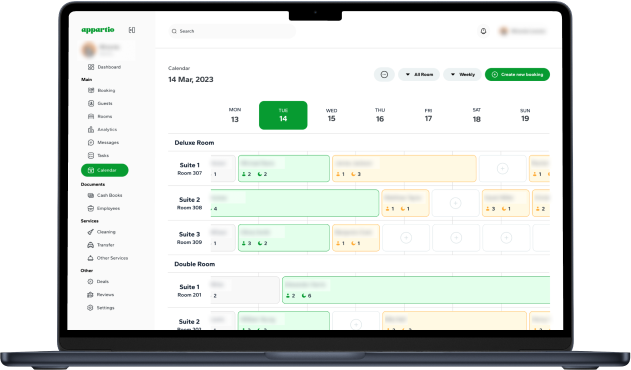We developed a comprehensive Property Management System (PMS) equipped with tools to manage housekeeping and maintenance workflows, automatically assigning tasks, tracking progress, and notifying staff when rooms are ready. The platform also integrates seamlessly with third-party booking engines and payment gateways, streamlining the management of online reservations and transactions from a single, unified interface.
To further improve hotel operations, we integrated an AI-driven occupancy forecasting tool. This feature analyzes historical booking data and market trends, enabling hotels to adjust room pricing and staffing levels in real-time. The platform is designed to scale with hotel operations, efficiently handling high volumes of bookings while maintaining top performance, even during peak periods.
Cloud-based architecture
The platform is built on a cloud-based infrastructure, allowing hotel staff to access and manage operations from anywhere with an internet connection. This ensures data security, remote accessibility, and real-time updates across all devices, providing flexibility for hotel management and staff.
Modular design for customization
The PMS features a modular design, allowing hotels to customize the platform according to their specific needs. Hotels can choose and activate modules like reservations, housekeeping, or invoicing as required, ensuring a tailored solution that grows with their business.
Room & service management automation
The platform automates key functions such as room assignments, availability updates, and service requests. By automating these tasks, the system ensures that hotels can provide faster, more accurate service to guests while reducing manual errors and saving time.
Third-party integration
The PMS includes a custom API that facilitates integration with various third-party applications such as booking engines, property management software, and payment gateways. This enables hotels to connect with their existing systems, ensuring a smooth and efficient operational flow.









